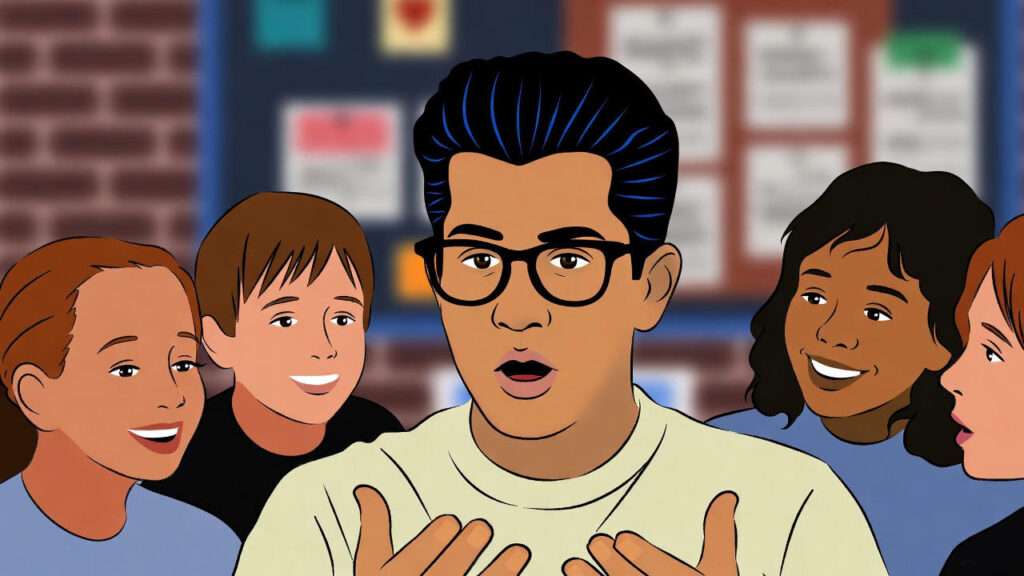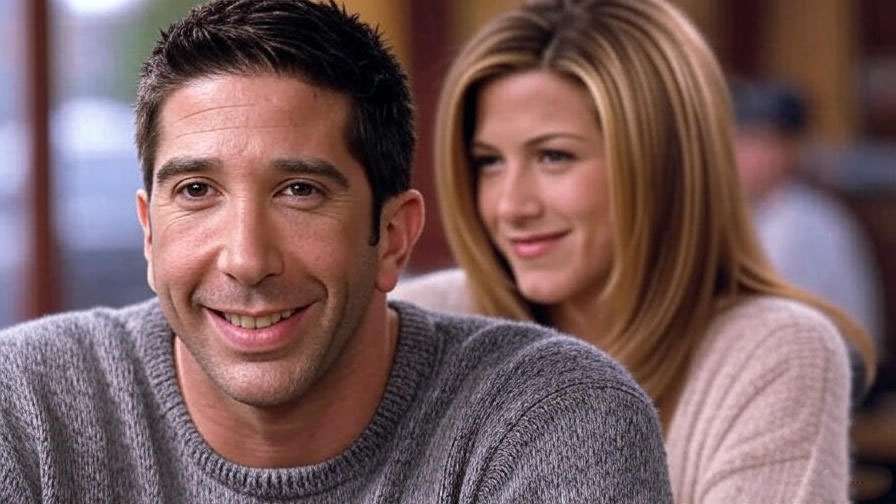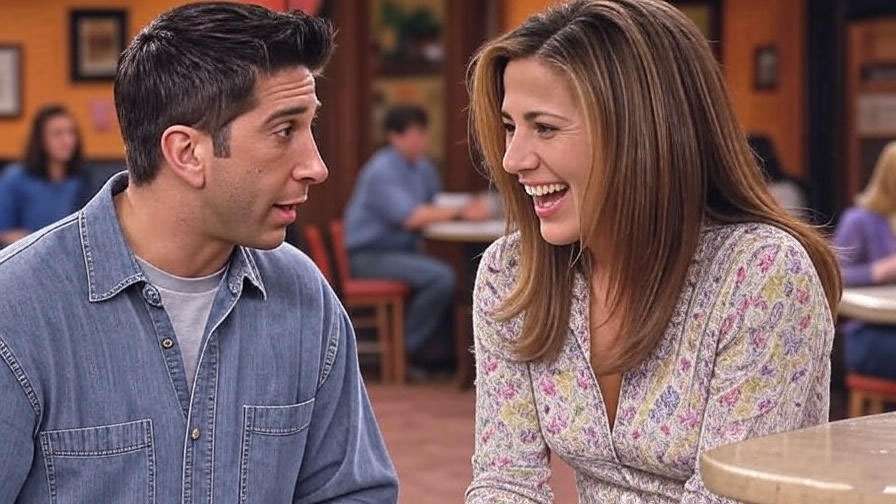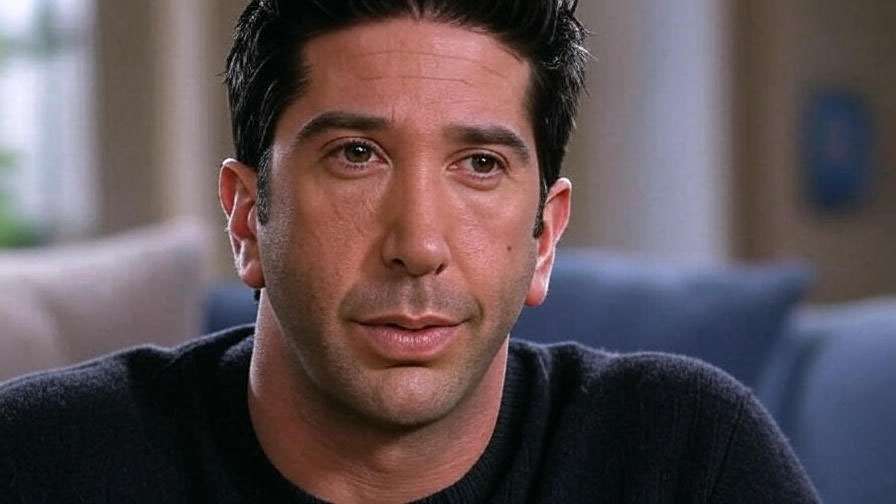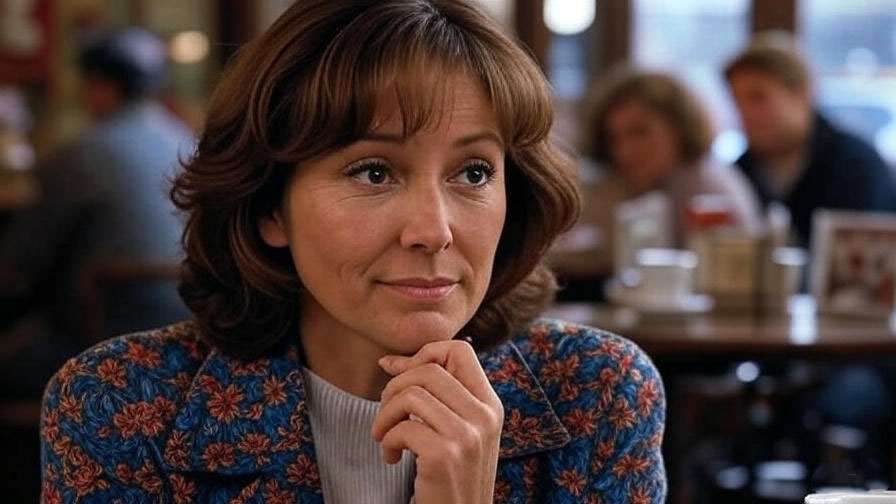The Nerdy Genius Before Central Perk
Picture this: a young boy with a mop of dark hair, oversized glasses slipping down his nose, passionately talking about fossils while his classmates giggle behind him. That boy is Ross Geller, long before he became the paleontologist we all know from Friends. His story, though mostly told through flashbacks and humorous references, begins at Ross Middle School — the place that quietly shaped his quirks, passions, and insecurities.
For many Friends fans, the phrase “Ross Middle School” instantly sparks curiosity. What was Ross like before Rachel, before dinosaurs, and before Central Perk? The sitcom gave us glimpses of his early years — filled with science fairs, awkward crushes, and sibling rivalries — that built the foundation for one of TV’s most complex, lovable nerds. Understanding Ross’s middle school memories helps us see not just the humor, but the heart behind his character.
In this article, we’ll take a deep dive into Ross Geller’s formative years, uncovering the hilarious and heartfelt moments that explain why he turned out exactly the way he did — and why fans can’t stop relating to him even decades later.
The Origin Story: Who Was Ross Geller Before Friends?
Before he became the romantic paleontologist we met in Friends, Ross Geller was already showing signs of who he would become. The eldest child of Jack and Judy Geller, Ross grew up in a suburban New York home filled with high expectations, sibling competition, and emotional over-analysis — the perfect recipe for a neurotic yet endearing personality.
Ross’s early traits — intelligence, sensitivity, and a deep love for science — were visible from his middle school days. He wasn’t the cool kid; he was the one organizing fossil collections instead of attending parties. His parents proudly paraded his academic achievements, often at the expense of his sister Monica, which planted the seeds of their famous rivalry.
Fans often wonder: how did this young, socially awkward boy evolve into the charming, if slightly obsessive, adult we see in Friends? The answer lies in those early school years — the stage where his curiosity bloomed, but his confidence faltered. Understanding Ross’s youth isn’t just nostalgia; it gives context to his adult struggles with relationships, jealousy, and validation.
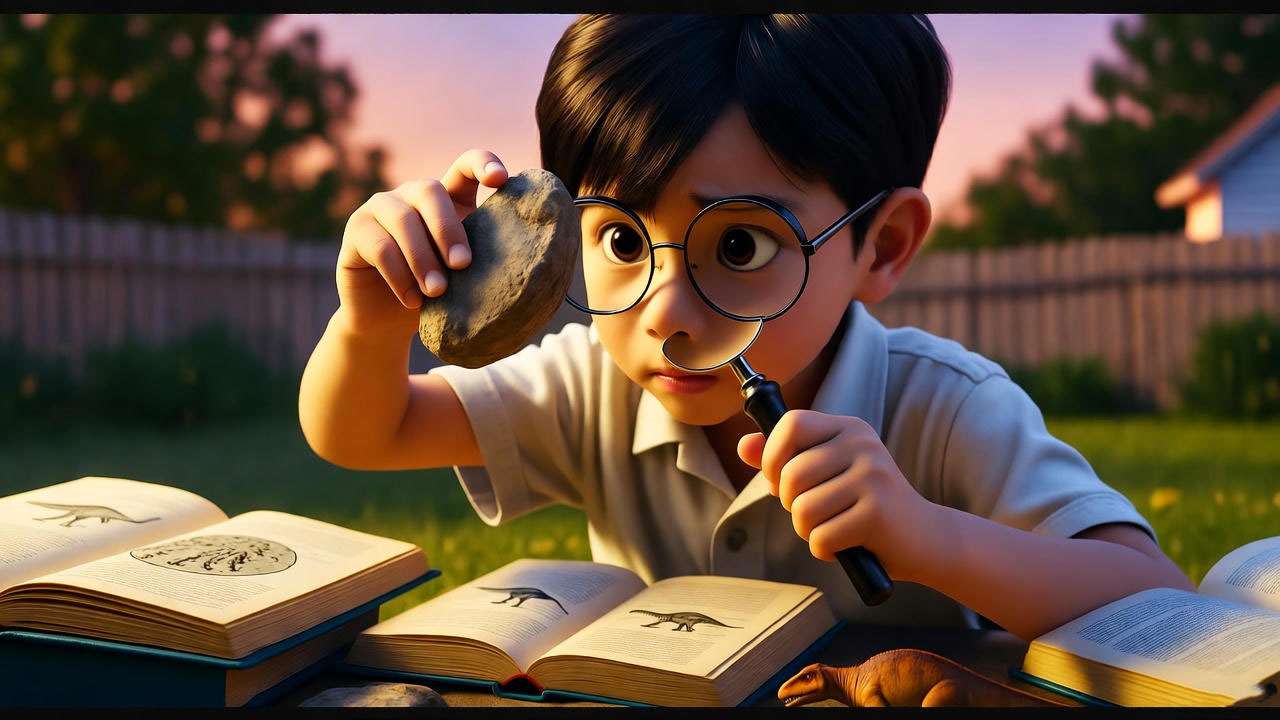
Flashbacks and Hints: How Friends Revealed Ross’s Middle School Days
The creators of Friends never dedicated a full episode to Ross’s middle school years, but through clever flashbacks and sibling banter, they painted a vivid picture. Several key episodes offer glimpses into his past — blending comedy, character depth, and nostalgia.
The One with the Prom Video (Season 2, Episode 14)
Arguably one of the most iconic Friends episodes, the Prom Video gives fans a heartfelt look at Ross’s younger self. Although this takes place a bit after his middle school years, the awkwardness remains the same — his clunky tuxedo, nervous mannerisms, and sincere crush on Rachel capture the essence of the young Ross who likely felt out of place even earlier.
The One with the Flashback (Season 3, Episode 6)
This episode showcases Ross’s college days, but his personality traits — nervous, over-analytical, deeply romantic — are direct extensions of habits he likely developed during Ross Middle School. His inability to “just be cool” or take risks is humorously exaggerated but deeply rooted in his cautious, perfectionist youth.
Sibling Stories from Monica
Throughout the series, Monica often shares stories that trace their roots back to their childhood — tales of Ross’s science projects, embarrassing habits, and their parents’ favoritism. These moments add humor but also emotional depth. For example, Monica’s resentment over her parents’ constant praise of Ross — “Ross can do no wrong!” — mirrors the long-term effects of growing up in his shadow.
Each flashback or anecdote isn’t just comedic filler. It’s a storytelling device that connects adult Ross’s quirks — his competitiveness, awkward humor, and overthinking — to the innocent beginnings of Ross Middle School.
Ross Middle School Memories: The Awkward and Adorable Highlights
Ross’s middle school life may not have been shown in detail, but fans can easily imagine it through the clues scattered throughout the series. Let’s relive the hilarious highlights that define his character’s early years.
1. The Dinosaur Kid Who Took Science Too Seriously
Even as a child, Ross wasn’t just interested in science — he lived it. While other kids collected trading cards or learned guitar, Ross was busy collecting fossils and sketching prehistoric creatures. His passion for paleontology, which later became both his profession and punchline, likely began with a middle school science fair project gone too far.
Picture him proudly setting up a cardboard volcano while his classmates mocked his “boring” topic — only for him to launch into a detailed explanation about sediment layers. Ross’s love for learning, combined with his desperate need to be understood, made him both brilliant and painfully awkward. This early devotion to science explains why adult Ross struggles when people — especially Rachel or Joey — dismiss his work. For him, science wasn’t just a career; it was a lifelong identity.
2. The Socially Awkward Genius in the Making
Ross’s middle school years probably weren’t filled with popularity or parties. His intelligence and sensitivity set him apart, but not in the way most teenagers dream of. Fans often laugh at adult Ross’s tendency to overexplain, overthink, and panic in social situations — traits that trace directly back to his youth.
He was likely the kind of kid who corrected teachers, used complex vocabulary, and froze up during group activities. These qualities, while endearing to viewers, would have made him a target for teasing. Yet, it’s that same vulnerability that makes him so human and relatable. Ross represents the smart kid who never quite learned how to relax — and that awkwardness became one of Friends’ most beloved comedic tools.
3. The Monica-Ross Sibling Rivalry Origins
The dynamic between Ross and Monica Geller remains one of the richest sibling portrayals on television. Their rivalry began long before adulthood — in the Geller household, competition was a sport.
Monica has often joked about Ross being the “golden child,” with their parents constantly praising his grades, science trophies, and academic promise. “Ross is a doctor,” Judy Geller would remind her at every opportunity, long before he even earned his Ph.D. These early family patterns explain Ross’s later insecurities and need for approval. He grew up feeling that success was expected — not celebrated — while Monica learned to fight harder for recognition.
Their middle school years likely featured constant one-upmanship: Ross winning science fairs, Monica excelling in sports or cooking competitions, and both secretly craving parental validation. This dynamic set the emotional foundation for their adult relationship — competitive but full of affection and loyalty.
4. First Crushes and Teenage Awkwardness
If there’s one area where young Ross likely struggled, it was romance. His adult love life — filled with grand gestures, jealous outbursts, and passionate declarations — is a continuation of his teenage romanticism. Middle school Ross was probably the boy writing heartfelt notes to girls who never noticed him, or nervously offering to carry their books while blushing furiously.
His crushes were pure and awkward, often ending in comedic disaster. These formative experiences shaped the Ross we later see — the man who believes in true love, who overanalyzes relationships, and who sometimes lets his insecurities sabotage his happiness.
From a storytelling standpoint, Friends uses Ross’s romantic history to mirror the universal teenage experience: wanting to be loved for who you are, even when you don’t fit in.

How Ross’s Middle School Personality Shaped His Future
Ross Geller’s adult identity isn’t random — it’s the sum of his childhood patterns. The traits that made him stand out in middle school defined his adult personality in profound ways.
1. His Passion Became His Purpose:
His middle school fascination with science evolved into a prestigious academic career. Ross became a respected paleontologist, proving that being “the nerdy kid” can pay off.
2. His Sensitivity Became His Struggle:
Ross’s emotional nature, often the subject of jokes, is deeply tied to his past. Growing up as the overachiever meant carrying immense pressure to be perfect, leading to anxiety and overthinking in adulthood.
3. His Humor Became His Defense Mechanism:
Ross’s awkward jokes and overreactions often stem from self-consciousness. His middle school experiences taught him to use humor to mask discomfort — a relatable trait that keeps audiences rooting for him.
Ross’s middle school years weren’t glamorous, but they were foundational. They shaped a man who, despite his flaws, embodies intelligence, vulnerability, and heart — the very reasons Friends fans continue to adore him.
Fan Theories: What We Don’t Know About Ross Middle School
While Friends never directly shows Ross Geller’s middle school years, the fandom has more than made up for it. Across Reddit threads, fan pages, and nostalgic forums, several theories have emerged that fill in the blanks — blending humor, psychology, and imagination. Let’s explore some of the most popular (and entertaining) Ross Middle School theories.
1. The Science Fair Origin Story
Many fans believe that Ross’s obsession with paleontology began with a failed or overly ambitious middle school science fair project. In true Ross fashion, it probably involved fossils or recreating prehistoric habitats — something far too advanced for his age group. The theory goes that despite being mocked for it, Ross won the competition, sparking his lifelong commitment to proving himself through intellect.
This aligns perfectly with the Ross we know — the man who corrects people’s grammar, argues about the proper use of “we were on a break”, and insists that dinosaurs are not just bones but “evidence of history.”
2. The “No Friends at Ross Middle School” Theory
Some fans suggest that Ross’s social awkwardness in adulthood stems from being isolated during middle school. His intelligence, emotional depth, and lack of cool-factor may have left him friendless, forcing him to turn to books and science for comfort. This theory explains why Ross is so dependent on his Friends group later in life — they represent the social circle he never had as a kid.
In psychological terms, his need for connection and validation is an echo of unhealed childhood loneliness. It’s no coincidence that Ross often seeks emotional reassurance, even in small matters — like needing Rachel’s validation, or Monica’s approval, or Chandler’s support.
3. The Dinosaur Nickname Theory
A lighthearted fan favorite suggests that Ross earned the nickname “Dino” or “Fossil Boy” during middle school because of his love for prehistoric creatures. While intended as teasing, Ross supposedly embraced it over time, turning mockery into identity. That transformation — from embarrassment to pride — beautifully reflects the journey of self-acceptance many fans admire in him.
4. The Monica Catalyst Theory
According to this theory, Ross’s awkwardness — and even his future romantic insecurities — can be traced to his early relationship with his sister Monica. Her teasing, competitiveness, and occasional superiority complex may have contributed to Ross’s emotional caution in relationships. Yet, it also toughened him, helping him build the resilience that defined him later on.
Each of these fan theories adds color to Ross’s unseen years, reminding us that Friends’ characters were designed with remarkable psychological depth. Even the parts we never saw feel real, because the writing — and David Schwimmer’s performance — made them believable.
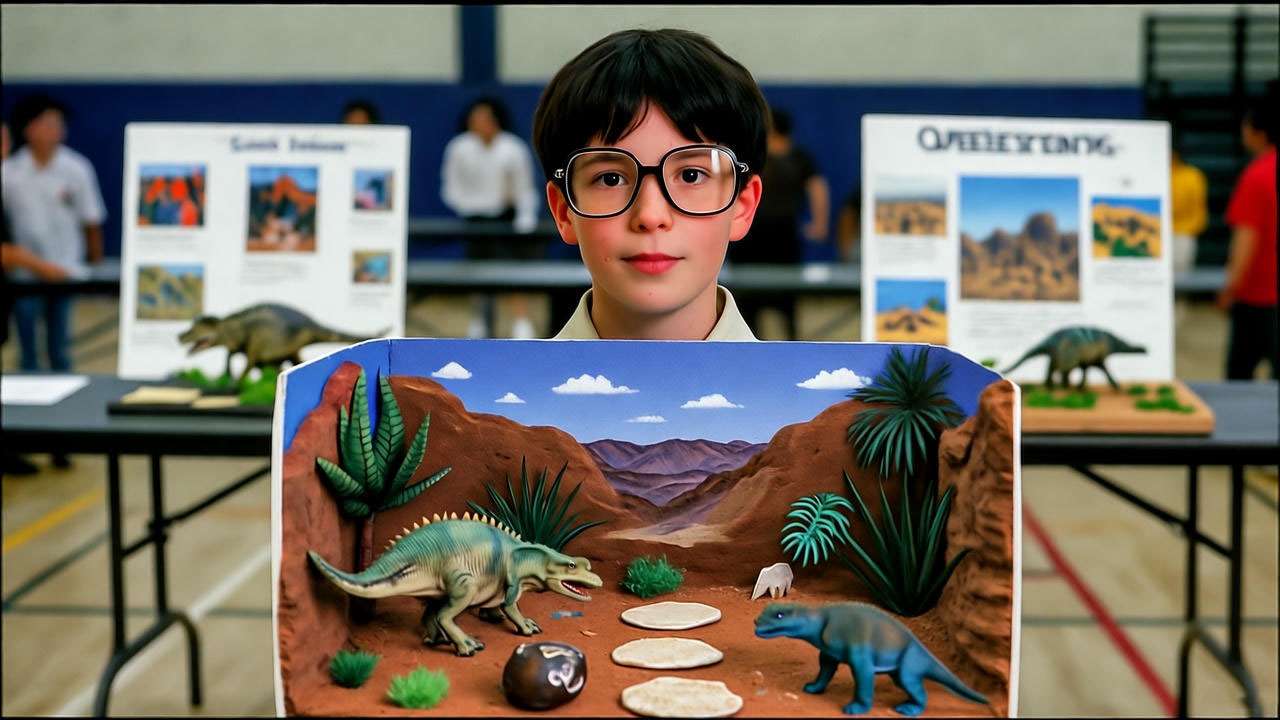
Lessons from Ross Middle School: What Fans Can Relate To
Ross’s journey from a nerdy middle schooler to a confident (if slightly neurotic) adult resonates deeply because it mirrors the human experience. Beneath the comedy lies a story of resilience, growth, and embracing one’s uniqueness.
Here are some timeless lessons fans can take away from Ross Middle School and beyond:
1. It’s Okay to Be Passionate About What You Love
Ross never stopped loving dinosaurs, no matter how much people teased him. His passion became his purpose — and that’s an empowering message for anyone who’s ever been told they’re “too into” something. In a world that often rewards conformity, Ross’s story encourages authenticity.
2. Awkwardness is Part of Growth
Everyone has a “middle school version” of themselves — insecure, unsure, and trying to fit in. Ross reminds us that those awkward years are not something to be ashamed of. They’re proof of how far we’ve come. His clumsy, over-analytical ways became part of what made him lovable, proving that imperfection is endearing.
3. Family Shapes Us — But Doesn’t Define Us
Ross’s complicated relationship with his parents and sister Monica shaped much of his adult personality. Yet, he learned to step out of that dynamic and build his own identity. It’s a reminder that while our families influence us, they don’t determine our destiny.
4. Intelligence Doesn’t Guarantee Confidence
Ross’s brilliance didn’t spare him from insecurity. In fact, it sometimes deepened it. His middle school struggles show that intelligence and self-worth don’t always align — and that emotional intelligence matters as much as academic success.
5. Being “Different” Can Be Your Superpower
Ross’s uniqueness — his scientific curiosity, his awkward humor, his big heart — made him stand out. And that’s exactly what made him memorable. For viewers who felt like outsiders growing up, Ross Geller is proof that being different isn’t a flaw; it’s a foundation for greatness.
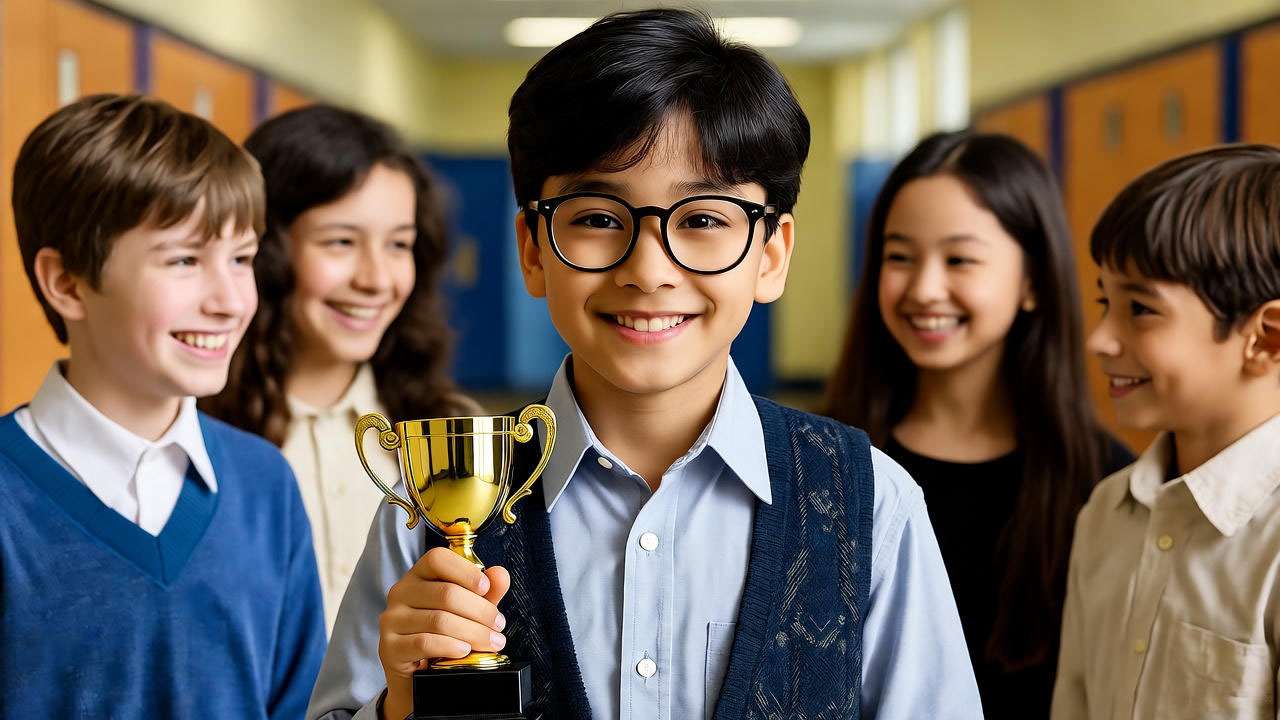
Behind the Scenes: How David Schwimmer Brought Young Ross to Life
Part of why Ross’s middle school persona feels so authentic is David Schwimmer’s performance. Even without dedicated childhood flashbacks, Schwimmer infused Ross with nuances that hinted at his past — mannerisms, speech patterns, and emotional cues that allude to a once-awkward boy trying to navigate adulthood.
1. The Body Language of a Former Geek
Schwimmer’s posture — slightly hunched, hesitant gestures, wide-eyed enthusiasm when talking about science — all echo the physicality of a socially anxious teen who never quite grew out of his adolescent awkwardness. It’s subtle, but consistent, and it tells a story without words.
2. The Voice of Uncertain Confidence
Ross’s voice often wavers between assertive and insecure, especially in moments of emotional stress. This dynamic mirrors the teenager who’s still learning how to express himself without fear of ridicule. Schwimmer once mentioned in interviews that he approached Ross as a “gentle soul trapped in his own intensity,” which perfectly encapsulates that inner middle schooler.
3. Collaboration with the Writers
The Friends writers reportedly leaned into Schwimmer’s strength for physical comedy — especially his ability to make discomfort funny. Episodes like “The One with Ross’s Sandwich” and “The One Where Ross Is Fine” show exaggerated versions of a man still overreacting like a teenager who hasn’t mastered self-control. The humor works because it’s grounded in character history.
This commitment to continuity — both in writing and acting — gives Ross Geller emotional realism. His Ross Middle School essence lives in every awkward pause, every enthusiastic monologue, every earnest attempt to be understood.
Pop Culture Impact: Why Fans Still Love Ross’s Awkward Origins
Even after decades, Ross Geller remains one of the most discussed and debated characters in TV history. His awkwardness, once played for laughs, has become a symbol of relatable imperfection in pop culture.
1. The Rise of “Lovable Nerds”
Before Ross, few sitcoms portrayed intellectual characters with emotional depth. He paved the way for modern “lovable nerds” like Ted Mosby (How I Met Your Mother), Leonard Hofstadter (The Big Bang Theory), and Jonah from (Superstore). His middle school awkwardness became the prototype for a generation of characters who proved that intelligence and vulnerability can coexist.
2. The Meme Legacy
Ross’s anxious expressions and exaggerated reactions — often rooted in his adolescent insecurities — have fueled thousands of internet memes. From “Pivot!” to “I’m fine!” these moments resonate because they capture emotions we all feel but rarely admit.
3. A Nostalgic Reflection
For fans who grew up with Friends, Ross represents a nostalgic comfort. He’s the awkward kid in all of us who eventually finds belonging. Revisiting his middle school memories through fan theories and flashbacks feels like rediscovering an old yearbook — cringeworthy yet heartwarming.
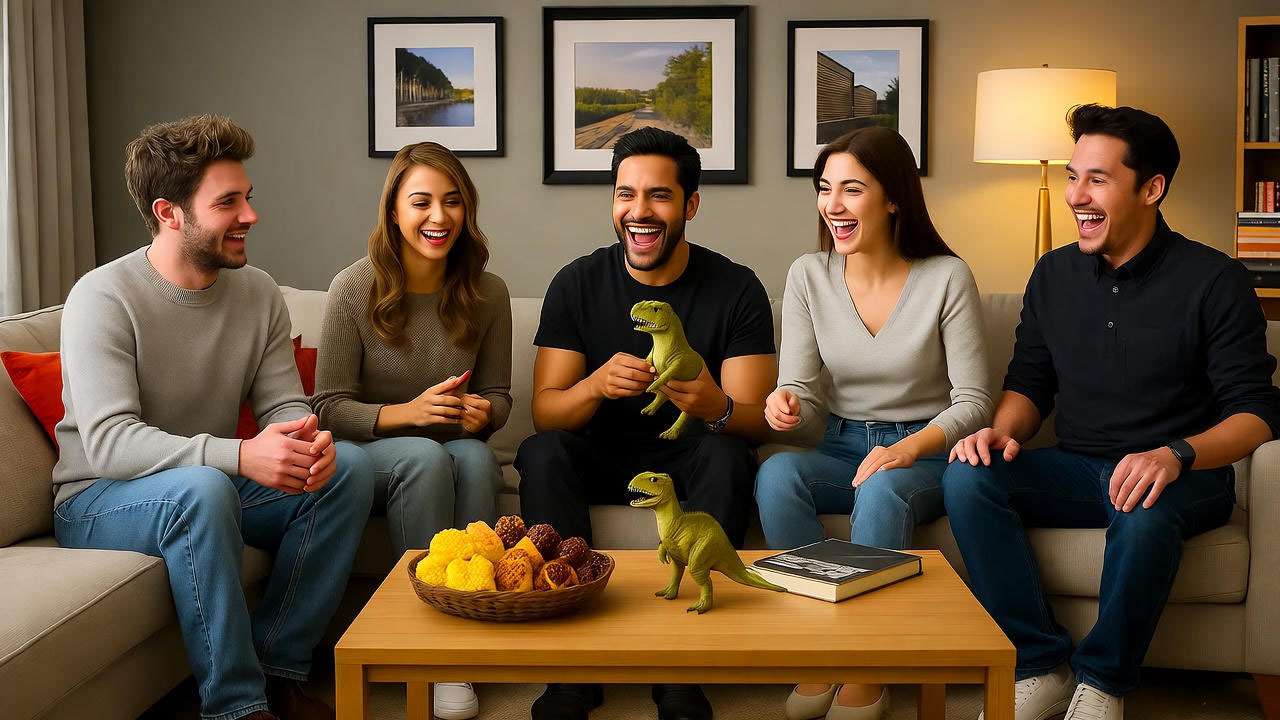
FAQs About Ross Middle School and His Early Life
Q1: Did Friends ever show Ross in middle school?
No, Friends never depicted Ross’s middle school years directly, but several flashbacks and anecdotes from Monica and his parents reveal insights into that period.
Q2: Where did Ross Geller go to school?
Canonically, Ross and Monica grew up in Long Island, New York, and attended local schools there before Ross went on to college and eventually earned his Ph.D. in paleontology.
Q3: What were Ross’s hobbies as a kid?
Ross was passionate about science, particularly dinosaurs and fossils. He likely participated in science fairs, collected fossils, and spent time studying instead of socializing.
Q4: How did his relationship with Monica affect his personality?
Their sibling rivalry created both emotional scars and strengths — pushing Ross toward perfectionism while giving him empathy and loyalty that shaped his friendships later in life.
Q5: Why do fans love Ross’s awkward younger years?
Because they’re relatable. His vulnerability, combined with his intelligence and humor, mirrors the universal struggle of growing up — wanting to be seen, accepted, and loved despite your quirks.
Conclusion: From Ross Middle School to Central Perk — The Evolution of a Lovable Nerd
Ross Geller’s journey from Ross Middle School to Central Perk is more than a comedic transformation — it’s a story about growth, self-acceptance, and the beauty of imperfection. His awkward, nerdy youth shaped a man who became one of the most enduring characters in television history.
Through flashbacks, family dynamics, and David Schwimmer’s nuanced performance, we glimpse the boy behind the man — the insecure student who grew into a devoted friend, brother, and romantic dreamer. Ross reminds us that the traits that once made us feel “different” are often the very things that make us special.
In the end, his middle school memories aren’t just funny anecdotes. They’re the roots of everything that made Ross — and Friends itself — timeless.

